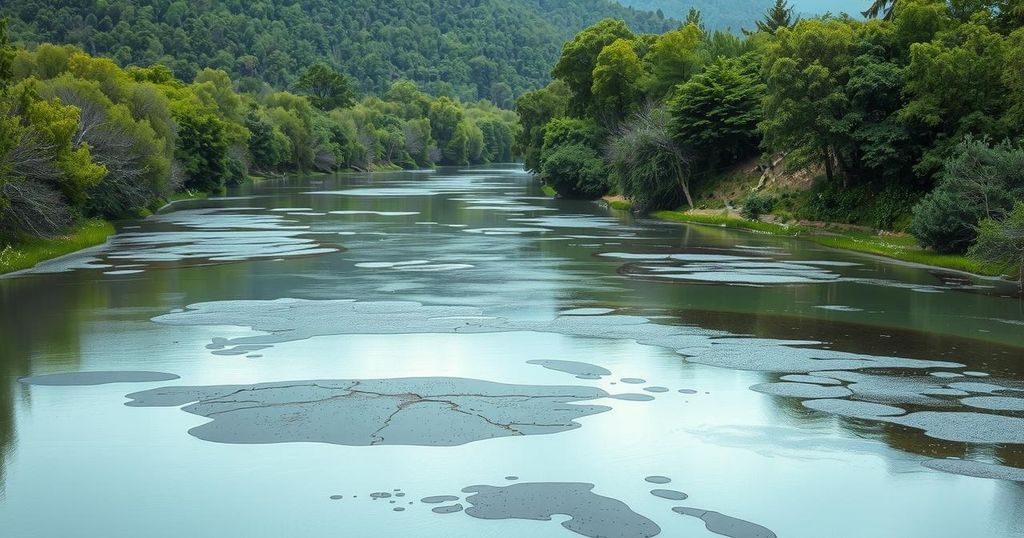Iraq’s environmental crisis, marked by crude oil seepage into land and rivers, threatens agriculture, public health, and livelihoods. Neglect of oil wells, damaged infrastructure, and inadequate government response have exacerbated the issue. Experts call for urgent, sustainable measures to address the underlying causes and protect Iraq’s natural resources.
Iraq is facing a significant environmental crisis, characterized by oil seepage into both land and waterways, jeopardizing agriculture, public health, and local livelihoods. Once a symbol of national pride, crude oil has turned into a detrimental force, gradually poisoning the environment and endangering citizens’ health across the nation.
Crude oil has infiltrated fields and rivers, leaving destruction in its wake. Agricultural lands that once thrived with crops are now tainted with toxins, while rivers that provided sustenance to communities have become contaminated, directly harming the resources vital for the livelihoods of millions.
In the Baiji district, near Al-Muslaha village, residents report unsettling conditions, including black patches on the ground and the unpleasant smell of crude oil. Mahmoud Al-Qaisi, a retired refinery employee, noted that the oil wells in the area have been neglected for over fifty years, hindering potential exploration and study. “No government has moved to exploit them or even study them to determine their nature—whether they are pure crude oil or mixed with sulfur,” he remarked.
Ali Khorsheed, a former official in the Kirkuk Environment Department, stated that many oil leaks are attributable to the extensive damage sustained by pipelines during the war against ISIS. These pipelines frequently face sabotage, resulting in the illegal extraction of oil and subsequent spills.
After ISIS took control of oil fields in 2014, they created storage tanks for oil and damaged infrastructure by detonating pipelines. Muhammad Majid, director of the Environment Department in Saladin, emphasized the consequences of these actions, as large amounts of oil seeped into the environment. Following territorial recovery, security forces buried damaged tanks but rain has led to the resurgence of oil contamination in the environment.
While oil is considered a national treasure, its uncontrolled leakage has become akin to a curse, posing serious threats to public health and agricultural viability. Residents observe fatalities among livestock and wildlife attributed to contaminated water sources. Saadoun Abdullah, a farmer, reported that oil spills have decimated agricultural lands, marking a severe loss for local farming.
Despite the pressing issues, governmental efforts have been inadequate. Security measures remain lax, and there is a noticeable absence of investment in neglected wells and pipeline infrastructure. Experts stress the necessity for a comprehensive plan, including updating the pipeline network, improving leak detection, and rehabilitating polluted areas.
Khorsheed criticized the government’s temporary measures, stating that they focus on alleviating immediate pollution without addressing fundamental issues such as outdated pipelines. He noted, “The crisis recurs because the underlying issues remain,” pointing out that despite monitoring efforts, their recommendations have been ignored.
Thus, oil leaks persist as an ongoing crisis in Iraq, with potential repercussions that extend beyond local areas to affect larger populations and water security. In light of the worsening environmental situation, there are increasing demands from residents and experts alike for urgent and sustainable interventions to safeguard Iraq’s natural resources.
In conclusion, Iraq faces an escalating environmental crisis due to oil leaks that jeopardize health, agriculture, and livelihoods. Suffering from outdated infrastructure and insufficient government action, there is an urgent need for comprehensive solutions to prevent further ecological disaster. The rising calls from citizens and experts stress the importance of immediate intervention to protect the nation’s environmental integrity.
Original Source: shafaq.com




